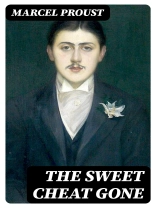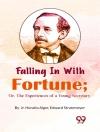In ‘The Sweet Cheat Gone, ‘ Marcel Proust delves into the intricacies of memory, desire, and the ephemeral nature of time, characteristic of his monumental work ‘In Search of Lost Time.’ This novel employs a rich, introspective narrative style underpinned by intricate psychological observations and vivid imagery, reflecting Proust’s unique ability to intertwine personal experience with universal themes. As part of his larger exploration, the book captures the fleeting moments of beauty and the elusive nature of relationships, provoking profound reflections on love and loss against the canvas of early 20th-century French society. Marcel Proust, a prominent figure in literary modernism, was deeply influenced by his own life experiences and social milieu. His aristocratic background and struggles with identity and anxiety led him to interrogate the nature of existence and the complexities of human emotions. ‘The Sweet Cheat Gone’ serves not just as a narrative but an introspective journey echoing Proust’s contemplation of time’s relentless march and the bittersweet nature of nostalgia, drawing from his own tumultuous relationships and experiences. This book is highly recommended for readers interested in profound explorations of memory and identity. Proust’s eloquent prose and deep psychological insight provide a captivating experience for those seeking to engage with the intricacies of the self and the passage of time, making it an essential read for any literary enthusiast.
लेखक के बारे में
Marcel Proust, born Valentin Louis Georges Eugène Marcel Proust on July 10, 1871, in Auteuil, France, stands as one of the most profound and celebrated authors of the 20th century. His work is renowned for its intricate form and deep exploration of memory and desire, particularly showcased in his seminal seven-part novel, ‘À la recherche du temps perdu’ (In Search of Lost Time), which delves into themes of time, art, and the self. The English edition of the sixth volume, ‘The Sweet Cheat Gone’ (‘Albertine disparue’), captures the intricate psychology of love and loss, a hallmark of Proust’s style. His narrative techniques, which include lengthy sentences and stream-of-consciousness prose, have influenced countless writers and have solidified his place in the modernist canon. Proust’s education in the humanities, despite chronic asthma and health issues, shaped his literary output and his interactions with French salons and the upper crust of Parisian society provided much material for his fiction. The meticulous attention Proust paid to detail and sensory experiences is reflected not only in ‘The Sweet Cheat Gone’ but throughout his oeuvre, allowing readers a vivid entry into the worlds he creates. Proust passed away on November 18, 1922, but left behind a body of work that continues to be studied, revered, and enjoyed for its deep humanity and timeless insights into the human condition.












